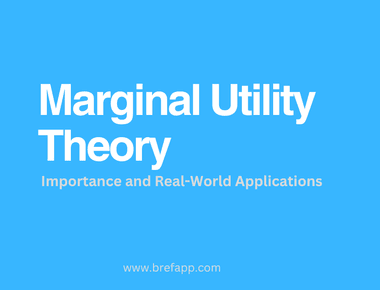
The Wealth of Nations: A Summary of Adam Smith's Classic Work on Economics

Adam Smith was an 18th-century Scottish philosopher and economist who is widely considered to be the father of modern economics. In 1776, he published his seminal work, “An Inquiry into the Nature and Causes of the Wealth of Nations,” commonly known as “The Wealth of Nations.”
“The Wealth of Nations” is an influential book that had a significant impact on economic thought and policy. It provided a groundbreaking analysis of the market economy and the principles that govern it. Smith’s ideas about the division of labor, specialization, and the role of self-interest in the market economy have been the basis of economic thought for centuries. The book also introduced the concept of the “invisible hand,” which suggests that an individual’s self-interest can benefit society as a whole.
“The Wealth of Nations” remains an important work today and continues to be studied by economists, policymakers, and students of economics around the world. In this article, we will provide a summary of the book’s main ideas and its impact on economic thought.
Background on Adam Smith
Adam Smith was born in Kirkcaldy, Scotland in 1723. He attended the University of Glasgow at the age of 14, where he studied philosophy, mathematics, and history. After completing his studies, he went on to become a professor of logic at the University of Glasgow in 1751, and later, a professor of moral philosophy in 1752.
During his time as a professor, Smith became interested in economics and began to write about it in his lectures and books. In 1759, he published “The Theory of Moral Sentiments,” a work that explored the nature of morality and human behavior.
Smith’s most significant contribution to economics came in 1776 with the publication of “The Wealth of Nations.” The book was the result of years of research and writing, and it represented a major breakthrough in economic thought. Smith’s insights into the workings of the market economy and his theories on the division of labor, specialization, and the role of self-interest in the economy revolutionized economic thinking.
After the publication of “The Wealth of Nations,” Smith continued to work as a professor of moral philosophy at the University of Glasgow until his death in 1790. His contributions to economics and philosophy have had a lasting impact on modern thought and continue to be studied and debated by scholars today.
Summary of “The Wealth of Nations”
A. The concept of the invisible hand
One of the key concepts in “The Wealth of Nations” is the idea of the invisible hand. Smith argued that when individuals act in their own self-interest in the market, an invisible hand guides their actions in a way that benefits society as a whole. For example, when a business owner seeks to maximize profits, they will produce goods and services that people want and need, and they will do so efficiently to remain competitive. This creates a more prosperous and productive society.
B. Division of labor and specialization
Another important concept in the book is the division of labor and specialization. Smith argued that when tasks are broken down into smaller, more specialized tasks, workers become more efficient and productive. This results in increased output, lower costs, and higher wages. For example, a factory that specializes in producing only one type of product can produce it more efficiently and at a lower cost than a factory that produces multiple products.
C. Free markets and the role of government in the economy
Smith was a strong proponent of free markets and limited government intervention in the economy. He argued that when individuals are free to make their own economic decisions without interference from the government, they will act in ways that benefit society as a whole. However, he also recognized that there were certain situations where government intervention may be necessary, such as when there is a market failure or a need to provide public goods.
D. The role of capital, labor, and land in economic growth
Smith believed that economic growth was driven by the accumulation of capital, the availability of labor, and the productivity of land. He argued that the accumulation of capital was essential for investment and innovation, while the availability of labor allowed for the production of goods and services. Productive land was also necessary for agriculture and other industries.
E. The benefits of international trade
Smith argued that international trade could benefit all countries involved by allowing them to specialize in producing goods and services in which they have a comparative advantage. This would result in increased efficiency and lower costs, which would lead to higher standards of living for all. Smith believed that free trade was the best way to promote international cooperation and prosperity.
To illustrate these concepts, Smith provided numerous examples throughout the book, including the production of pins, the benefits of international trade in wine and cloth, and the role of government in regulating certain industries, such as banking and the minting of coins.
Impact and Legacy of “The Wealth of Nations”
A. Influence on economic thought and policy
“The Wealth of Nations” has had a significant impact on economic thought and policy. Smith’s ideas about the market economy, the role of self-interest, and the benefits of specialization and trade have become the foundation of modern economic theory. The book also contributed to the development of classical liberalism, which emphasizes individual freedom and limited government intervention in the economy.
The book’s influence can be seen in the policies of many countries, including the United States, which adopted many of Smith’s ideas in its economic policies. For example, the U.S. has a free market economy that is based on the principles of individual freedom and competition.
B. Criticisms and debates
Despite its influence, “The Wealth of Nations” has been the subject of criticism and debate. Some argue that Smith’s ideas are too simplistic and do not take into account the complexities of the modern economy. Others argue that Smith’s emphasis on self-interest and competition can lead to inequality and social unrest.
There has also been debate about the role of government in the economy. While Smith argued for limited government intervention, others argue that the government should play a more active role in regulating the economy and providing social services.
C. Continuing influence
Despite the criticisms and debates, the ideas presented in “The Wealth of Nations” continue to influence economic thought today. Smith’s emphasis on the role of self-interest, competition, and specialization can be seen in modern theories of market economies. The book’s ideas have also been applied to international trade, with many countries adopting free trade policies based on Smith’s ideas.
“The Wealth of Nations” remains a classic work in economics, and its ideas continue to be studied and debated by economists, policymakers, and scholars around the world. Its legacy is evident in the many countries that have adopted market-based economies and in the ongoing debates about the role of government in the economy.
Final Thoughts
“The Wealth of Nations” by Adam Smith is a classic work in economics that has had a significant impact on economic thought and policy. Smith’s ideas about the market economy, the role of self-interest, and the benefits of specialization and trade have become the foundation of modern economic theory. The book’s influence can be seen in the policies of many countries, including the United States, which adopted many of Smith’s ideas in its economic policies.
While the book has been subject to criticism and debate, its ideas continue to influence economic thought today. Smith’s emphasis on the role of self-interest, competition, and specialization can be seen in modern theories of market economies. The book’s ideas have also been applied to international trade, with many countries adopting free trade policies based on Smith’s ideas.
“The Wealth of Nations” remains a significant work in economic history and thought, and its ideas continue to be studied and debated by economists, policymakers, and scholars around the world.
-—
Tags
Related Posts




Quick Links
Categories

